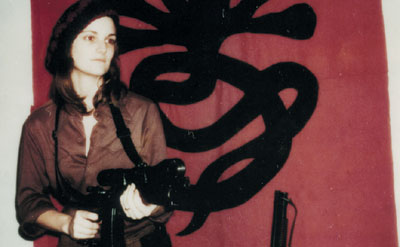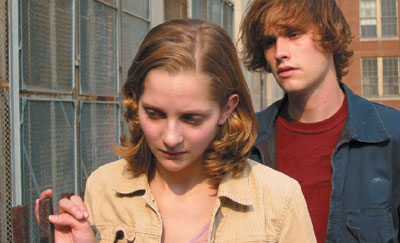COMMUNITY BUILDING
By Anthony Kaufman
 |
| Neverland: The Rise and Fall of the SLA |
“It’s been a bit of a whirlwind since that screening at the IFP market,” says Robert Stone, director of Neverland: The Rise and Fall of the SLA [Symbionese Liberation Army], a few weeks after the Independent Feature Project’s 25th annual fall film Market (which ran last September 21 through 26 in New York City). “We’ve sold it to ARTE and several other European stations, been selected to the Berlin Film Festival, and had U.S. broadcast offers from HBO and PBS. My phone has not stopped ringing,” he adds. “Now all of a sudden everyone who turned the film down as an idea wants to buy it. Can’t beat that.” Triumphant success stories like Stone’s are hard to come by at the IFP Market, but they do exist, continuing to give hope to independent filmmakers looking for dependence, funding and a place to call home.
Stone’s riveting documentary — about the events surrounding the kidnapping of heiress Patty Hearst — was one of the few projects to generate a sizable buzz at this year’s event. And that’s okay. According to IFP/NY director Michelle Byrd, “In contrast to past years when people had unrealistic expectations, now people are more practical. It’s about making relationships. It’s much more a convening of a community than it is a market.”
Even between the networking sessions and numerous panels (including the highly popular Meet the Buyer series), those festival programmers and acquisition execs who actually made it to the Angelika Film Centre (or more likely, the video library) discovered a selection of films largely higher in quality than in recent market outings.
 |
| Wilderness Survival for Girls. |
Among them, Sundance veteran Stanley Nelson (The Murder of Emmett Till) previewed his latest project, A Place of Our Own, a personal documentary that examines the rise of black leisure in America through his own family’s weekend getaways to the Oak Bluffs section of Martha’s Vineyard. And in Rolling (winner of a $10,000 work-in-progress doc award), Gretchen Berland, a physician at the Yale University School of Medicine, teamed up with director Mike Majoros (Unfinished Symphony) to chronicle the troubles, humiliations and struggles of living in a wheelchair. Shot (and “directed”) by the handicapped participants themselves, the result is three heartbreaking self-portraits that bring to mind the seminal AIDS doc Silverlake Life: The View from Here.
A number of nonfiction works in progress also showed promise: Blue Vinyl directors Daniel B. Gold and Judith Helfand’s global-warming comedy Melting Planet, Hank Rogerson’s Shakespeare behind Bars, Don Argott’s Rock School, Micha Peled’s Made in China: Behind the Label, Cassandra Herrman and Kelly Whalen’s Tulia, Texas, Jack Youngelson and Peter Sutherland’s Tierney Gearon: Photographer and Joe Angio’s Melvin Van Peebles portrait How to Eat Your Watermelon in White Company (and Enjoy It).
 |
| The Other America. |
Even this year’s Emerging Narrative section included some talents to watch: German filmmaker Benno Schobert shows languorous restraint in his story of a family of three homeless youths, Shelter (winner of the top narrative prize and $85,000 in goods and services); and on the opposite side of the spectrum, Kimberly Roberts and Eli B. Despres’s tawdry trapped-teens thriller Wilderness Survival for Girls is a guilty pleasure sure to find further programming slots. Philadelphia filmmaker Eugene Martin (Diary of a City Priest) brought a clip reel of his work in progress The Other America and was pleasantly surprised by the response. “I was approached by a number of festival programmers and distributors after my screenings to submit and/or screen,” he says. “Right now I have to balance the excitement of all the interest with the task of completing the film. But I think that is a good problem to have.”
VOD CALENDAR


 See the VOD Calendar →
See the VOD Calendar →


